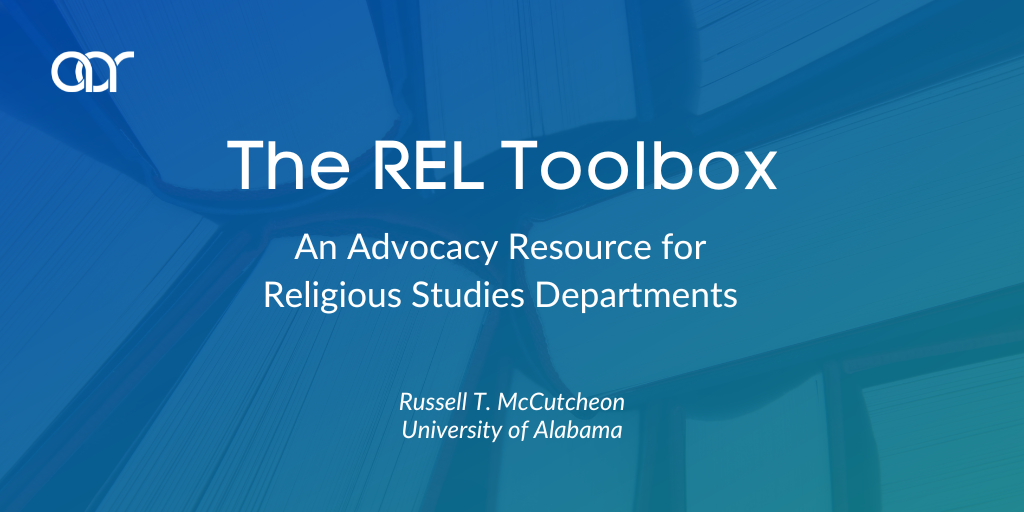The REL Toolbox
In 2023, the AAR tasked the Academic Relations Committee (ARC), of which I’m now chair, with developing a resource for those in leadership positions within a department, especially those new to such roles as chair, graduate director, undergraduate director, and even advisor. These are all positions of central importance in managing life within an academic department, whether helping a new faculty member come onboard or directing students to the correct courses to satisfy their degree requirements. But given the times in which we’re now living—when it is not unusual to learn each month of yet another Humanities program being merged or even whole sectors of a college’s traditional liberal arts programs being closed—it was reasoned that the resource should ideally also help faculty to think through how to cope when working in precarious settings (which can be more often than not). Has the Gen Ed or Core program been revised on your campus, like so many others in the past few years? Are there fewer required Humanities courses? Are students allowed to count professional programs to satisfy these requirements? Is your campus paying more attention to the number of graduates and thus majors? Has your budget office started to report data on the cost of delivering each credit hour? We all likely know friends or colleagues whose programs are under threat, are being merged, or already closed—in fact, the program may even have been your own. eEven if that is not you (yet) it would be naive not to recognize how easily it could.
And so was born the REL Toolbox.
Hosted in collaboration with the University of Alabama and written by a variety of faculty with leadership experience in each of their departments, the free online resource now features an initial set of entries and will be regularly growing.

(If you are interested in contributing, I invite you to contact me at russell.mccutcheon@ua.edu.)
The articles are brief, offer background on the topic under consideration such as department mergers or mentoring graduate students, along with recommendations for things to keep in mind (say, when approaching a budget, endowments, or advising). Your setting will no doubt be different from those of the authors, but the overlaps are often numerous, suggesting that each of us can do better than try to reinvent the wheel. After all, we’re not the first to go through a program review of our department or to recommend someone for tenure and promotion, let alone grapple with the increase in contingent teaching lines. Links to the authors of each piece are meant to invite conversations and questions.
Finally, there’s also a publicly viewable Google Sheet on the site, to which those leading an “at risk” program can gain access by writing to me; it’s aimed at tracking the challenges that many of us are facing but also organizing and empowering those who find themselves in the same situation. It identifies the department, invites a summary of its current challenges and its responses while also providing the contact info for the person who populated it with information.
The REL Toolbox isn’t singlehandedly going to solve every program’s problems, but the hope is that it makes clear that there’s others in it too, maybe working far from your campus but as near as a quick email and then a follow-up Zoom call. That’s also been the unspoken motive behind the ARC’s monthly Zoom webinars, which began in the Fall of 2023 and continue still at 3 p.m. EST on the last Wednesday of each month (recordings of past ARC WebinAARs can be found here). After all, sharing hard-won experience is likely the starting point for any sort of effective action. Email me if you have suggestions of brief pieces that you’d like to add and be sure to watch Religious Studies News and AAR’s social media for future announcements of new entries on the site.





